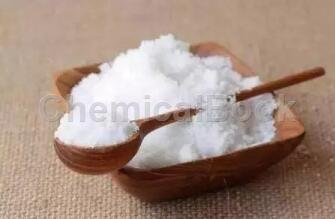
In accordance with the requirements of laws and regulations such as the “Food Safety Law of the People’s Republic of China”, as well as Beijing’s 2018 Food Safety Supervision Sampling Inspection Plan and corresponding sampling inspection rules, the Beijing Food and Drug Administration organized random inspections of vinegar, soy sauce, and catering foods , beverages, other categories (ready-to-eat fresh-cut fruits and vegetables and cold-chain ready-to-eat foods), brewed sauces, salt, mutton and by-products, beef and by-products, eggs and egg products, and vegetables, a total of 551 batches of samples from 11 categories of food, including 546 qualified samples batches, 5 batches of unqualified samples.
Overall situation
53 batches of vinegar, all qualified; 50 batches of soy sauce, all qualified; 50 batches of catering food, all qualified; 38 batches of beverages, all qualified; other categories (ready-to-eat fresh-cut fruits and vegetables and cold chain ready-to-eat foods) 34 batches, all qualified; 26 batches of brewing sauce, all qualified; 20 batches of salt, all qualified; 132 batches of mutton and by-products, including 131 batches of qualified samples and 1 batch of unqualified samples; 86 batches of beef and by-products batches, including 85 batches of qualified samples and 1 batch of unqualified samples; 24 batches of eggs and egg products, including 23 batches of qualified samples and 1 batch of unqualified samples; 38 batches of vegetables, including 36 batches of qualified samples , 2 batches of unqualified samples.
Situation of unqualified samples
1. The nominal mutton supplied by Hebei Jinhong Halal Meat Co., Ltd. and operated by Yeji Beef Store in Shunyi, Beijing. The unqualified item is moisture. The measured value after testing is 79.8%, and the standard value is ≤78%. The inspection agency is the National Meat Food Quality Supervision and Inspection Center.
2. The nominal unqualified item for beef supplied by Hui Autonomous County Hongsheng Meat Co., Ltd. and operated by Beijing Yuxiang Jinyuan Trading Co., Ltd. is moisture. The actual measured value after testing is 79.7%, and the standard value is stipulated as ≤77%. The inspection agency is the National Meat Food Quality Supervision and Inspection Center.
3. The unqualified item for fresh eggs sold by Beijing Jijing Supermarket was florfenicol. The actual measured value was 15.0 μg/kg, and the standard value stipulates that no detection is allowed. The inspection agency is Pony Testing Group Co., Ltd.
4. The unqualified item for the leeks sold by Sunguang Valley Supermarket in Beijing was procymidone. The actual measured value was 0.72 mg/kg, and the standard value stipulates that the maximum residue limit is 0.2 mg/kg. The inspection agency is Pony Testing Group Co., Ltd.
5. The unqualified item for soybean sprouts sold by Yuxi Longda Supermarket in Beijing is sodium 4-chlorophenoxyacetate. The actual measured value is 0.028 mg/kg, and the standard value stipulates that no detection is allowed. The inspection agency is Pony Testing Group Co., Ltd.
Disposal
In response to unqualified food found during food safety supervision and sampling inspections, the Beijing Municipal Food and Drug Administration has required the food and drug regulatory authorities where food operators are located to investigate them in accordance with the law; if it involves other places, the situation of unqualified food has been reported The local food and drug regulatory authorities were notified.
Risk interpretation and tips
1 Moisture
Moisture is the most abundant component in meat. The amount and state of moisture in meat affects the processing quality and storage properties of meat. The reason for excessive moisture content may be caused by illegal water injection. The “Moisture Limits of Livestock and Poultry Meat” (GB 18394-2001) stipulates that the moisture content of mutton is ≤78% and that of beef is ≤77%. Among the unqualified mutton samples inspected this time, the measured moisture value was 79.8%; among the unqualified beef samples, the measured moisture value was 79.7%. The reason for excessive moisture content may be caused by illegal water injection. Water-injected meat has a short shelf life and is prone to spoilage, posing certain safety risks.
2 Florfenicol
Florfenicol is an animal-specific antibacterial drug approved by the Ministry of Agriculture. It is mainly used for bacterial diseases in pigs, chickens and fish caused by sensitive bacteria. However, the use of florfenicol is prohibited in egg-laying poultry. According to the “Maximum Residue Limits of Veterinary Drugs in Animal Foods” (Announcement 235 of the Ministry of Agriculture), florfenicol is prohibited in laying hens. The source of florfenicol detected in eggs may be the company’s addition of chicken feed or the treatment of poultry diseases. The florfenicol residue used accumulates in the poultry body and is then passed to the eggs. The FAO/WHO Joint Expert Committee on Food Additives (JECFA) has set the acceptable daily intake (ADI) of florfenicol as 0-3 μg/kg body weight. According to the actual measured value of florfenicol in this unqualified sample, it is 15.0 μg. /kg calculation, then an adult weighing 60 kg, regardless of other food sources, would consume 12 kg of fresh eggs per day, which would reach the health guidance value of florfenicol and may pose risks to human health.
3 Procymidide
Procymidone is a low-toxicity fungicide that can be used to control gray mold on cucumbers, eggplants, tomatoes, onions, stem rot of lettuce and peppers, and sclerotinia in rapeseed. The detection of procymidone in leeks may be due to its residue when used to prevent and control diseases, or the pesticide is not used according to the prescribed safety interval. The “National Food Safety Standard Maximum Residue Limits of Pesticides in Food” (GB 2763-2016) stipulates that the maximum residue limit of procymidone in leeks is 0.2 mg/kg. The allowable daily intake (ADI) of protanide in GB 2763-2016 is 0.1 mg/kg bw, which is calculated based on the actual measured value of protanide in this unqualified sample of 0.72 mg/kg, without considering other food sources. It is equivalent to an adult weighing 60 kg. If he eats 8.3 kg of leeks every day, he will reach the health guidance value of procymidone and may cause risks to human health. �A large amount of low-toxic pesticide residues will not cause acute poisoning, but long-term consumption of vegetables with excessive pesticide residues may have certain adverse effects on human health.
4 Sodium 4-chlorophenoxyacetate
Sodium 4-chlorophenoxyacetate is a plant growth regulator. It is mainly used to prevent flower and fruit drop, inhibit the rooting of beans, etc., and can regulate the balance of hormones in plants. However, due to its accumulated toxicity to the human body, the detection of sodium 4-chlorophenoxyacetate in bean sprouts may be due to illegal use by bean sprout manufacturers in order to inhibit the rooting of bean sprouts and increase bean sprout yield during the production process. The announcement of the State Food and Drug Administration, the Ministry of Agriculture, and the National Health and Family Planning Commission on the prohibition of the use of 6-benzyladenine and other substances in the production process of bean sprouts (No. 11, 2015) stipulates that the use of 4-benzyladenine is prohibited in the production and operation of bean sprouts. Sodium chlorophenoxyacetate. The allowable daily intake (ADI) of sodium 4-chlorophenoxyacetate is tentatively set at 0~0.08 mg/kg (bw). According to the actual measured value of sodium 4-chlorophenoxyacetate in this unqualified sample, it is 0.028 mg/kg. According to calculations, without considering other food sources, it is equivalent to a 60 kg adult who consumes 171.4 kg of soybean sprouts every day, which may cause risks to human health.


